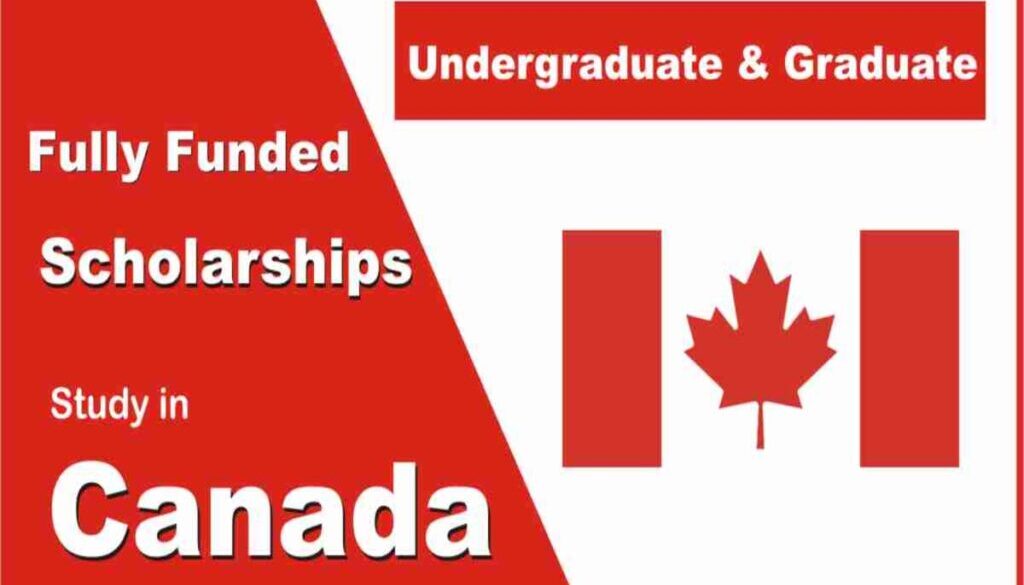How To Apply For Canadian Scholarship
Applying For Canadian Scholarships
Applying for scholarships in Canadian universities can be a game-changer for students looking to ease the financial burden of higher education. Scholarships are available for both domestic and international students, offering support based on academic achievements, extracurricular involvement, financial need, and more. Here’s a practical guide on how to go about applying for scholarships at Canadian universities.
1. Start Early
One of the most important tips is to begin your scholarship search early. Scholarships often have strict deadlines and may require a considerable amount of time to gather documents, write personal statements, and fill out applications. Starting early gives you enough time to find a variety of scholarships and tailor each application to meet specific requirements.
2. Research Scholarship Opportunities
Canadian universities offer a range of scholarships for both undergraduate and graduate students. Some of the best places to start your search are:
- University Websites: Almost all universities in Canada list their scholarship opportunities on their official websites. Check the scholarships section for details on available funding, eligibility criteria, and application procedures.
- Government Programs: The Canadian government provides scholarships like the Vanier Canada Graduate Scholarships for doctoral students or the Canada Graduate Scholarships (CGS). These awards are highly competitive and usually require a separate application process.
- Private Organizations and Foundations: In addition to university and government scholarships, many private organizations offer scholarships for Canadian students. Some examples include the Loran Scholars Foundation and TD Scholarships for Community Leadership. Websites like Yconic or ScholarshipsCanada.com list thousands of opportunities for students.
- Department-Specific Scholarships: Many university departments offer scholarships tailored to specific fields of study, such as engineering, business, or the arts. These are often highly specialized, so make sure to research what your department offers.
3. Check Eligibility Criteria
Each scholarship will have specific eligibility requirements, so it’s essential to carefully read the terms. These could include academic performance (such as maintaining a certain GPA), financial need, community service, leadership experience, or even residency status.
Some scholarships are merit-based, focusing on high academic achievement, while others are need-based, helping students who come from disadvantaged backgrounds. There are also scholarships for specific groups, such as Indigenous students, women in STEM, or international students.
4. Prepare Your Documents
Most scholarship applications will require a few key documents, so gathering them in advance is important:
- Transcripts: Most scholarships require official transcripts from your previous schools. Ensure these are up-to-date and certified by the institution if necessary.
- Letters of Recommendation: Many scholarships ask for one or more letters of recommendation. These should come from teachers, professors, employers, or community leaders who can speak to your character and accomplishments.
- Personal Statement or Essay: This is one of the most critical parts of your application. You’ll likely be asked to write about your goals, achievements, and why you deserve the scholarship. Tailor your essay to reflect the values of the scholarship organization and show how your experiences align with their mission.
- Resume or CV: A current resume highlighting your academic and extracurricular activities can be essential. It helps reviewers quickly understand your background, leadership skills, and volunteer work.
5. Tailor Each Application
Scholarship committees review numerous applications, so a generic application won’t stand out. Tailoring your application to fit each scholarship’s specific criteria is crucial. For instance, if the scholarship is for community service, highlight your volunteer work and leadership roles. If the award is based on academic excellence, emphasize your grades, research projects, and academic interests.
6. Submit Your Application
Follow the submission instructions carefully. Some scholarships require online submissions, while others may ask for physical copies. Double-check that all required documents are included and that you have followed the correct submission process. Missing documents or incorrect formatting can result in disqualification.
7. Stay Organized
Keep track of all your applications, deadlines, and any follow-up steps required. Consider creating a spreadsheet or a calendar to monitor each scholarship’s deadline and necessary actions. Some scholarships may require interviews or additional materials after your initial submission.
8. Follow Up
If you haven’t heard back by the expected date, it’s okay to send a polite email to inquire about the status of your application. Be sure to thank the scholarship committee for their time and consideration.
9. Don’t Forget About Renewal
Many scholarships are renewable for multiple years, provided that you maintain a certain academic standing. Be sure to keep track of renewal requirements to ensure you stay eligible for future funding.
10. Apply for as Many Scholarships as Possible
Even though applying for scholarships takes time and effort, the more scholarships you apply for, the higher your chances of receiving funding. Many smaller scholarships might seem insignificant on their own but can add up to a significant sum when combined. Additionally, applying for multiple scholarships increases the likelihood of receiving at least one award.
Applying for scholarships in Canadian universities is a competitive yet rewarding process. By starting early, thoroughly researching opportunities, tailoring your application, and staying organized, you can maximize your chances of receiving financial support. Don’t be discouraged if you face rejections—scholarship applications are highly competitive, and perseverance often pays off. Scholarships are an excellent way to ease the financial pressure of university and focus on your studies and personal growth. Good luck!


